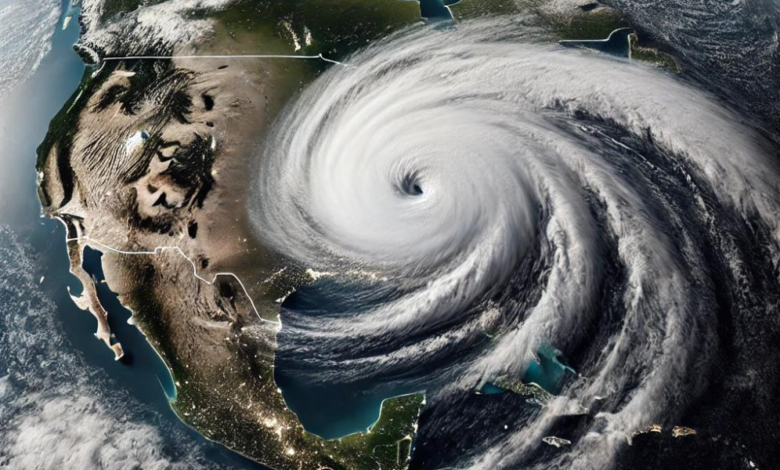Gallagher Reinsurance Company publishes report on the impact of Cyclone Debbie

Gallagher Reinsurance Company publishes report on the impact of Cyclone Debbie
Reinsurance
By Kenneth Araullo
Hurricane Debbie, the second hurricane of the 2024 Atlantic season, is expected to result in insured wind and water-related losses of between $1 billion and $2 billion for the private insurance market and public entities, including the National Flood Insurance Program (NFIP) and the USDA Risk Management Agency (RMA) Crop Insurance Program, according to Gallagher Re.
Financial loss estimates are preliminary and may change as the event develops, especially as rain and flooding continue across the southeast of the country.
Economic losses from Hurricane Debbie are expected to be significantly higher than insured losses. Gallagher Re notes that while utilization rates of the National Flood Insurance Program in coastal counties in Florida, Georgia and the Carolinas range from 10% to 50%, active policies are significantly lower inland.
Get the latest reinsurance news straight to your inbox twice a week. Sign up here
This suggests that a significant portion of flood damage may be uninsured, especially as the storm’s impact extends into the Mid-Atlantic and Northeast, where NCIP participation is also low. In addition, the agricultural sector is likely to see significant impacts.
Debbie made landfall in Florida nearly a year after Hurricane Idalia hit as a Category 3 storm in August 2023. Many residents in the Big Bend area were still in the process of recovering and rebuilding when Debbie struck, just miles from Idalia’s landfall.
Gallagher Re highlights that recent Category 1 hurricanes in Florida typically resulted in insured losses of around $1 billion, primarily due to wind impacts. However, Hurricane Debbie’s stagnant nature and heavy rains caused soil saturation, resulting in more extensive wind-related damage than we might expect from a weaker storm.
Read more: Cyclone Debbie losses covered by reinsurance by primary insurers – Moody’s
Initial estimates indicate that while wind damage was less severe than initially anticipated, insured losses could run into the hundreds of millions of dollars. Widespread tree and shrub growth in northern Florida, Georgia and the Carolinas contributed to the damage, as waterlogged soil made it easy for even moderate winds to topple trees.
Insured losses associated with flooding are expected to be more complex, with significant impacts already reported and likely to emerge as the storm progresses. Gallagher Re expects the private insurance market to face losses in the hundreds of millions of dollars, particularly from privately written motor and residential or commercial flood policies.
The National Flood Insurance Program’s payments are also expected to reach hundreds of millions of dollars, depending on the ultimate extent of rainfall and flooding. For comparison, Hurricane Florence in 2018 resulted in payments of $920 million (adjusted to 2024 dollars) from the National Flood Insurance Program.
Gallagher Re notes that participation in the National Flood Insurance Program is dropping sharply in inland counties, making it more likely that a significant portion of flood damage will go uninsured. In 2023, National Flood Insurance Program payouts from Hurricane Idalia exceeded $380 million, with most of the losses concentrated in the Tampa Bay area.
The general expectation is that Cyclone Debbie will be a manageable event for the reinsurance industry, with combined wind and water-related insured losses ranging from $1 billion to $2 billion.
Hurricane Debbie is the sixth hurricane to hit Florida in August since 1990 and follows the record-breaking path of Hurricane Beryl earlier in the 2024 season.
According to the latest reports, Hurricane Debbie has killed at least seven people and left more than 350,000 customers in Florida without power at its peak, with additional outages reported from Georgia to the Carolinas. Thousands of flights have been canceled or delayed, and the governors of Florida, Georgia, North Carolina, South Carolina and Virginia have declared states of emergency.
What do you think of this story? Feel free to share your comments below.
Get the latest reinsurance news straight to your inbox twice a week. Sign up here






Fetching comments…